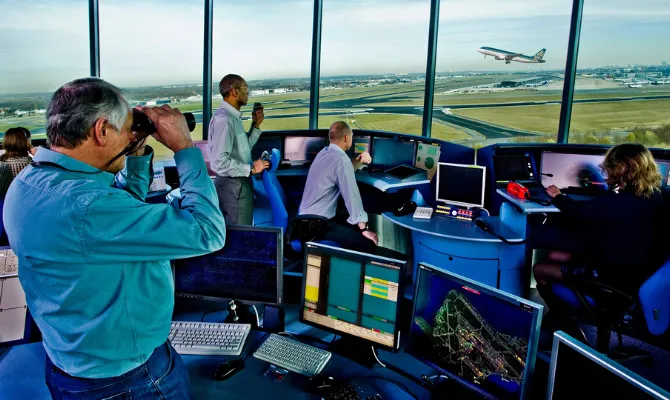The UAE is home to some of the busiest airports in the world, with Dubai International and Abu Dhabi International serving as key hubs for international travel. The effective management of airport operations is crucial to ensuring safety, efficiency, and a seamless travel experience for millions of passengers each year. Central to this operational success are control rooms, which play a vital role in coordinating air traffic, ground handling, and passenger flow.
Coordinating Air Traffic Control
One of the primary functions of control rooms in airport operations is managing air traffic. This involves:
– Real-Time Monitoring: Control rooms continuously monitor aircraft movements on the ground and in the airspace surrounding the airport. Utilizing advanced radar and tracking systems, operators maintain situational awareness to prevent collisions and manage flight schedules.
– Communication with Pilots: Air traffic controllers in the control room communicate directly with pilots, providing instructions for takeoff, landing, and taxiing. Clear and precise communication is essential for maintaining safety and efficiency.
– Handling Emergencies: In the event of unexpected situations, such as severe weather or technical issues, control rooms are responsible for implementing contingency plans and coordinating responses to ensure passenger safety.
Ground Handling Operation
Control rooms also oversee ground handling operations, which are crucial for the efficient turnaround of aircraft. Key responsibilities include:
– Coordinating Services: Operators manage various ground services, including baggage handling, refueling, and maintenance. This coordination is vital for minimizing delays and ensuring that aircraft are ready for their next flight.
– Monitoring Resources: Control rooms track the availability of resources such as ground crew and equipment, ensuring that all necessary services are deployed effectively. This real-time resource management helps optimize operations and reduce wait times for passengers.
Managing Passenger Flow
Ensuring a smooth passenger experience is a top priority for airports, and control rooms play a significant role in this process:
– Monitoring Check-In and Security Lines: Control rooms monitor passenger flow at check-in counters, security checkpoints, and boarding gates. By analyzing data in real-time, operators can identify bottlenecks and deploy additional staff or resources as needed.
– Integrating Information Systems: Control rooms utilize integrated information systems to relay real-time updates to passengers about flight statuses, gate changes, and security wait times. This information helps improve passenger flow and enhances the overall travel experience.
– Emergency Response Coordination: In case of emergencies, such as medical incidents or security threats, control rooms coordinate with airport security, medical teams, and law enforcement to ensure a swift and effective response, prioritizing passenger safety.
Technology Enhancements in Control Rooms
The effectiveness of control rooms in managing airport operations is bolstered by advancements in technology:
– Artificial Intelligence and Automation: AI-driven analytics can predict passenger flow patterns and optimize resource allocation. Automated systems help streamline processes, from baggage handling to security checks.
– Data Analytics: Control rooms leverage big data to analyze operational performance and identify areas for improvement. By evaluating trends, airports can enhance efficiency and better manage passenger expectations.
– Real-Time Communication Tools: Modern communication technologies enable seamless collaboration among various departments, ensuring that all stakeholders are informed and aligned in real-time.
Conclusion
Control rooms are at the heart of airport operations in the UAE, playing a crucial role in coordinating air traffic, managing ground handling, and optimizing passenger flow. As airports continue to evolve and embrace technological advancements, the importance of effective control room operations will only grow. By ensuring safety, efficiency, and an enhanced travel experience, control rooms are instrumental in maintaining the UAE’s status as a global aviation hub.


